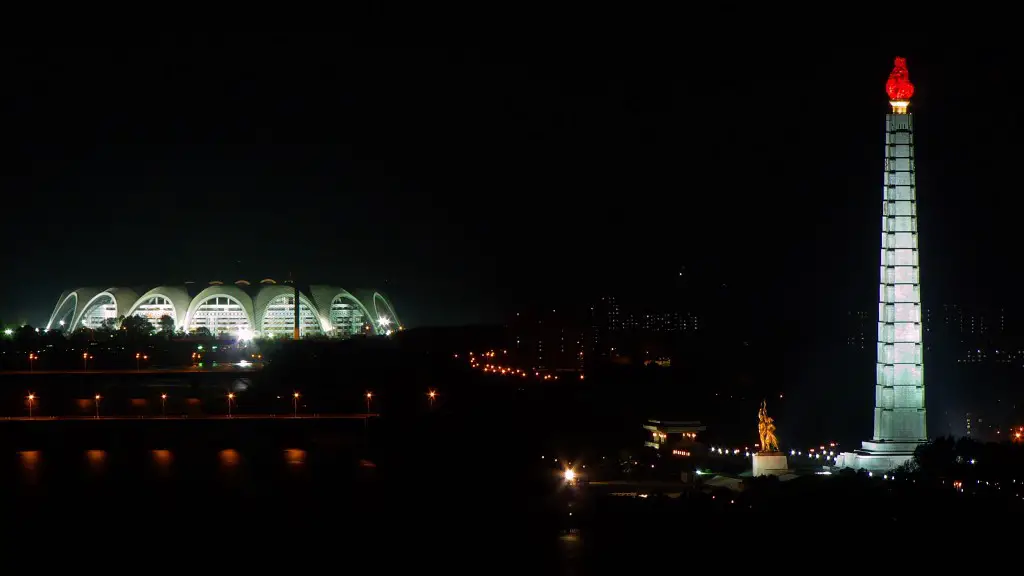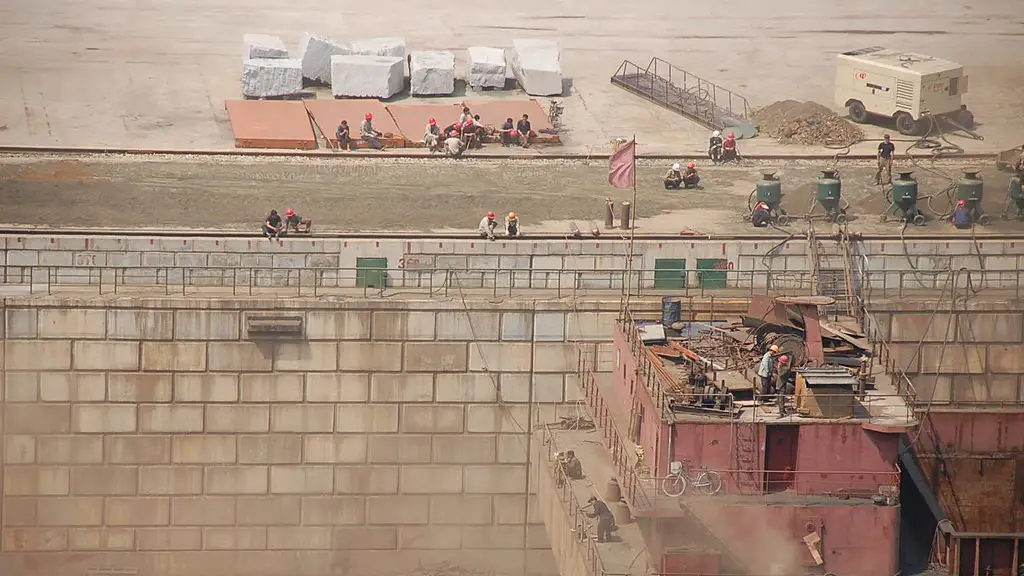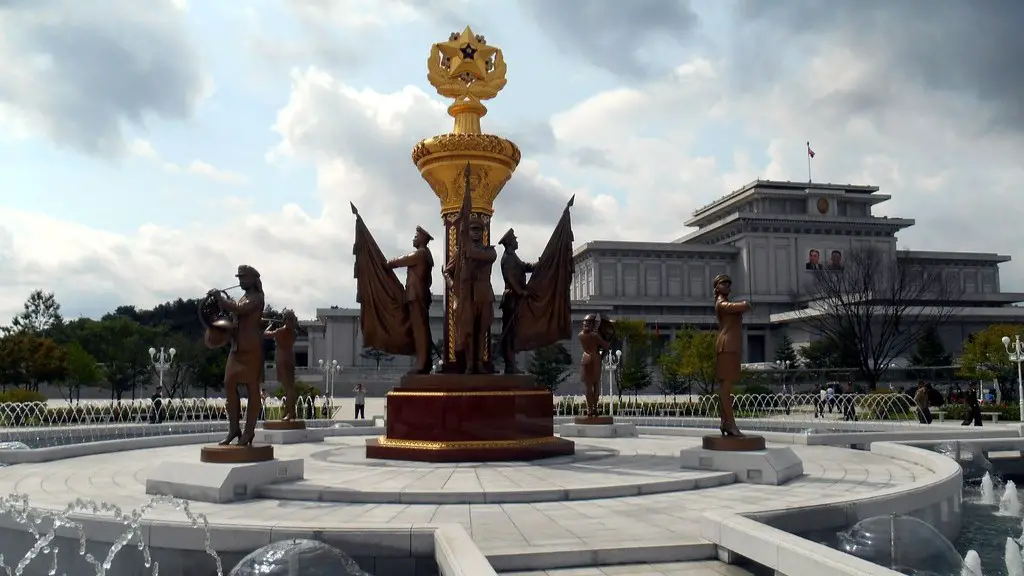North Korea’s nuclear weapons programme has been a source of tension in the international community for decades, due to its asserted capability to produce and deliver nuclear weaponry.
The country began to pursue nuclear technology in the 1950s, under the policy of ‘self-reliance’ during the Cold War, and started to build its own research reactor by constructing the Yongbyon nuclear facility in the 1960s. In the 1980s, North Korea entered into two international non-proliferation agreements, the Nuclear Non-Proliferation Treaty (NPT) and the Treaty on the Non-Proliferation of Nuclear Weapons (NPT), in parallel with its nuclear weapons development plans.
Since the 1990s, North Korea has conducted nuclear tests in an attempt to demonstrate its nuclear weapons capabilities. By the mid-2010s, it had conducted four underground nuclear tests, one of which was widely reported as having been a thermonuclear test. In late 2017, North Korean media reported that its arsenal included ICBMs with a range of more than 10,000km, indicating the country’s ability to deliver a nuclear weapon anywhere in the world.
The current level of North Korea’s nuclear capability is a matter of debate among analysts. According to some estimates, the country is believed to possess as many as 60 nuclear weapons. It is just as likely that less than 30 weapons are currently in North Korea’s possession. Given the secretive nature of North Korea, it is difficult to assess the plausibility of either estimate. In addition, some estimations suggest that North Korea could have enough enriched uranium to make three or four more nuclear bombs.
Experts generally agree that North Korea’s nuclear status poses a threat to international security and peace, despite the country’s assertions to the contrary. To de-escalate the tensions between the two countries and to prevent the further development of North Korea’s nuclear program, international organizations, such as the United Nations, have imposed stringent economic sanctions on North Korea.
The UN Security Council has also taken a hard stance on the issue, unanimously passing resolution 2371, which seeks to cut off the source of revenue for North Korea’s weapons of mass destruction, and calling on member states to increase monitoring of activities in the country. Nevertheless, North Korea continues to test, modify and improve its nuclear arsenal, with no signs of slowing down.
Political Objectives
To understand the reasons behind North Korea’s nuclear ambitions, one needs to take into account the country’s geopolitical environment. Located in the heart of Northeast Asia, North Korea is surrounded by strong neighbors – arising economic powerhouses such as China, as well as traditional powers such as the US and Japan. The perception of a US-led invasion, or of economic sanctions, has resulted in the country’s determination to develop a nuclear deterrent.
From Pyongyang’s point of view, nuclear development serves as a way to advance its own political objectives and ensure its security. North Korea has long held to a ‘byungjin’ doctrine, of parallel development of nuclear and conventional weapons, which is seen as an assurance that the country can respond militarily to any perceived threat. In this context, North Korea’s nuclear development has been seen as an insurance policy against external aggression. Furthermore, North Korea’s nuclear capabilities can be seen as a means to negotiate better terms of trade, development aid and international recognition.
In spite of its nuclear status, North Korea’s international political ambitions remain largely unmet. The country continues to be the most heavily sanctioned state in the world and is excluded from most major international institutions. Perhaps more significantly, North Korea’s nuclear stature has done little to bring about either effective economic recovery or a more relaxed international stance.
International Responses
The international community has responded to North Korea’s nuclear development with a range of responses. The 2015 deal between the US and China – known as the Joint Comprehensive Plan of Action (JCPOA) – lifted some nuclear-related sanctions and encouraged North Korea to abandon its nuclear programme. However, the deal has failed to bring substantial regulatory changes in North Korea, while the withdrawal of the US from the agreement in 2018 saw sanctions against the country reinstated. In response to North Korea’s nuclear tests and the failure of the JCPOA, the UN Security Council has imposed additional comprehensive sanctions against the country.
The US has also taken a hard stance, with President Trump most recently threatening North Korea with ‘fire and fury’ over its nuclear testing, exacerbating tensions between the two countries. While the US has stated that its preference is to initiate negotiations, its strategy has been described as ‘maximum pressure’ and shows little sign of yielding.
The European Union has taken a more conciliatory approach. Since 2013, the EU has imposed an arms embargo and financial sanctions on North Korea, and has reiterated its preference for diplomatic solutions. The EU has continued to call on North Korea to comply with its obligation to pursue negotiations.
In February 2021, North Korea offered to suspend its testing of nuclear weapons, missiles and other weapons of mass destruction in exchange for the US dropping its annual joint military exercises with South Korea. However, the US refused the offer, arguing that the proposed deal would not be enough to resolve the issue.
Collapse of Talks
Since 2018, there have been three rounds of face-to-face negotiations between North Korea and the US, all of which have failed to yield any tangible results. The most recent talks, held in Hanoi in late 2019, ended abruptly with little progress. By February 2021, any hope of progress in the negotiations had disappeared entirely, with the US launching renewed sanctions and North Korean leader Kim Jong-un publicly vowing to expand his country’s nuclear deterrent.
It is clear that North Korea’s nuclear ambitions remain a major point of contention in the international community. The UN has tried to pressure North Korea to denuclearize, but has failed to see any real progress in this mission, as North Korea has refused to back down on its nuclear weapons programme. The US, meanwhile, has taken a hard line stance, but has been unable to broker a deal. Unless an agreement can be reached, it is likely that the tensions between the two countries will continue to simmer.
Missile Development
In addition to its nuclear weapons programme, North Korea has also been actively developing a suite of delivery vehicles for its nuclear arsenal – most notably intercontinental ballistic missiles (ICBMs) and more recently submarine-launched ballistic missiles (SLBMs). North Korea’s progress in developing advanced delivery systems for its nuclear arsenal poses a particular challenge to the international community, as it increases the country’s capabilities and range of options for delivering nuclear weapons.
Since 2018, North Korea has successfully tested multiple ICBMs, with some reports suggesting that Pyongyang is now capable of targeting all of the continental US with its missiles. More recently, North Korea successfully tested two SLBMs in August 2019, with one capable of reaching the Marianas Islands and parts of California. North Korea is still believed to be working on improving the range and accuracy of its missiles, and this development is an area of growing concern for the international community.
In addition to this, North Korea is also believed to be developing the technologies needed to deliver nuclear warheads on ballistic missiles. This advancement will present a further challenge to international security, as North Korea may then be able to deliver nuclear weapons anywhere in the world, with a considerable degree of accuracy.
Geostrategic Consequences
The implications of North Korea’s nuclear weapons programme are potentially dramatic. In the short-term, the development of an advanced nuclear arsenal increases the country’s power on the world stage and gives it the ability to wield a nuclear deterrence. In other words, it provides Pyongyang with a degree of diplomatic and militarily leverage that it previously lacked.
In the longer-term, North Korea’s nuclear programme could have profound global implications, especially if the country is able to successfully deliver nuclear warheads to its intended target. Such an event would undoubtedly turn the international community into turmoil, with ramifications for global security and stability, as well as potentially increasing the risk of nuclear proliferation.
In particular, North Korea’s nuclear ambitions could have serious implications for East Asia, as it forces neighbouring countries such as South Korea and Japan to rethink their own security strategies. In this context, an outbreak of hostilities between North Korea and its neighbours could have catastrophic consequences and could potentially bring the region to the brink of war.
International Cooperation
Given the intense nature of the international response to North Korea’s nuclear programme, it is clear that a concerted effort is needed from the international community to resolve the issue. The UN Security Council needs to continue to push for a diplomatic resolution of the issue, as well as for a suspension of North Korea’s weapons development programme. In addition, the US should look for ways to engage Pyongyang in constructive dialogue and negotiations, as sanctions have thus far been unsuccessful.
The role of China, Japan and South Korea will be particularly critical in the resolution of the situation. All three countries have an interest in the stability of the Korean Peninsula, and all three should work together to facilitate a peaceful resolution of the crisis. In particular, China, with its greater economic and political clout over North Korea, could place significant pressure on Pyongyang to halt its weapons development.
Ultimately, North Korea’s nuclear weapons programme is a complicated issue, with no easy solution. It will require intense diplomatic negotiations, economic sanctions and potentially a fundamental shift in policy from the US and other relevant parties. The international community must work together to de-escalate tensions on the Korean peninsula, and to put an end to the North Korean nuclear situation.





